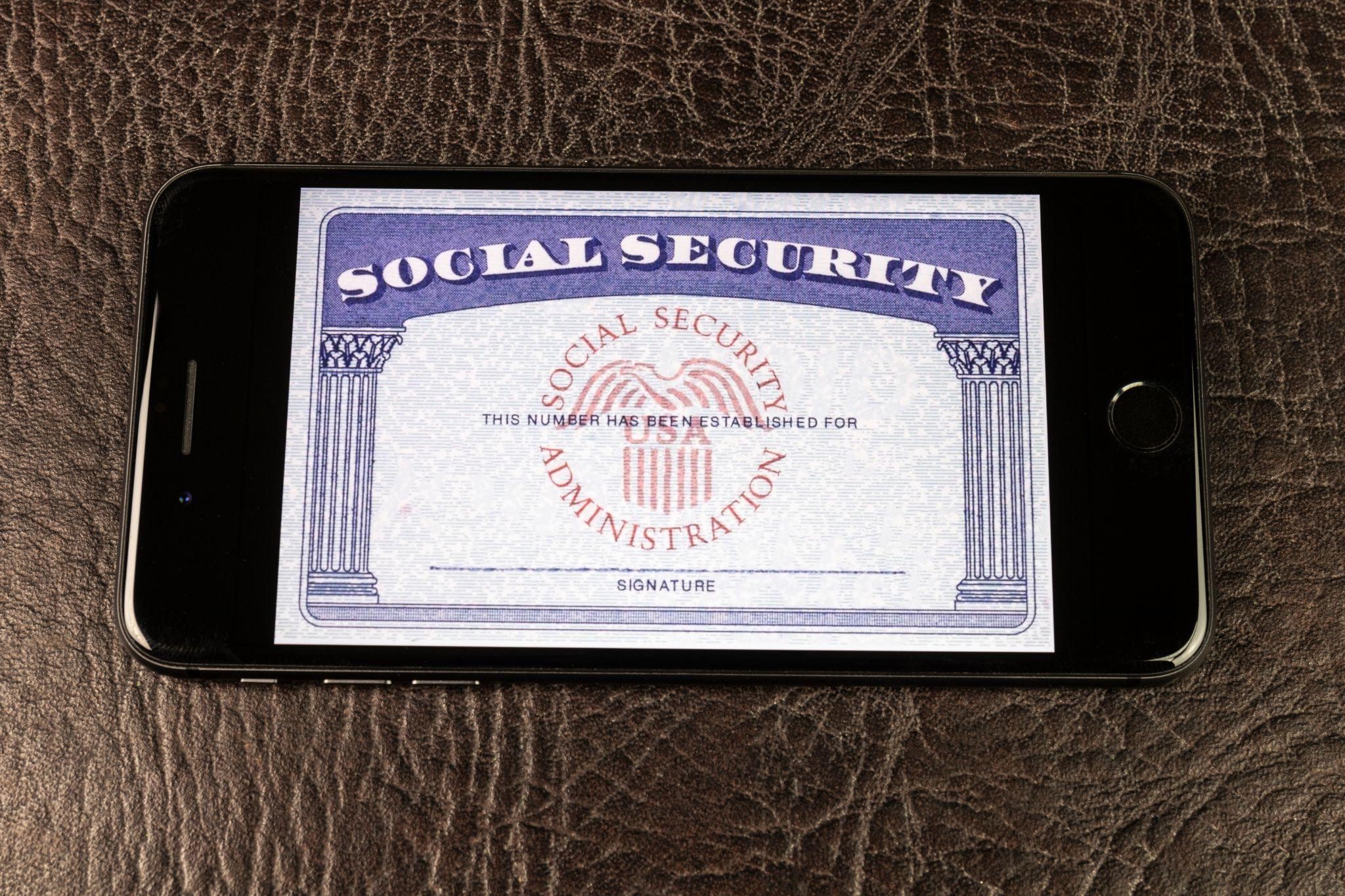The Medicaid program is an important part of the U.S. healthcare system, making it possible for low-income households to access quality medical care. As part of the Affordable Care Act passed in 2010, all U.S. states were required to expand Medicaid eligibility to make health care options more widely available. However, this portion of the ACA was deemed unconstitutional by the U.S. Supreme Court in 2012, and the mandate to expand health coverage became optional.
12 States Without Medicaid Expansion
The 12 states listed below have not expanded their regular Medicaid state programs to cover a broader range of state residents. If your state is listed here, make sure to check with your state Medicaid office to find out exactly which groups in your state are eligible for Medicaid coverage.
- Alabama
- Florida
- Georgia
- Kansas
- Mississippi
- North Carolina
- South Carolina
- South Dakota
- Tennessee
- Texas
- Wisconsin
- Wyoming
Understanding who is eligible for Medicaid and the specific services it covers can get complicated. Medicaid is jointly funded by the federal government and individual state governments, and the program details can vary widely. Since not all states have chosen to expand their eligibility requirements, it’s important to check with your state’s particular health plan to see if you qualify. You should also understand which benefits are covered by all Medicaid programs and which are explicitly excluded. The federal government stipulates that some benefits are mandatory for every Medicaid program, while it grants flexibility to the states to determine other optional services to cover.
What Is Medicaid Expansion?
A stipulation of 2010’s Affordable Care Act required all U.S states to expand the availability of Medicaid health coverage to all households earning less than 138% of the Federal Poverty Level. However, after a Supreme Court ruling in 2012, Medicaid expansion became optional. All but the 12 states listed above voluntarily have chosen to expand the groups to which they make Medicaid coverage available.
The federal government has mandated that several groups are automatically eligible for Medicaid. These include low-income pregnant women, low-income children (and sometimes their parents), some low-income seniors, and some disabled individuals under age 65.
Under the parameters of the Medicaid expansion, Medicaid will also grant health coverage for additional groups, including low-income households without children, able-bodied, low-income adults, and many low-income individuals who battle chronic mental illness. It’s also important to note that some individuals may be eligible for Medicaid and other federally funded programs, such as Supplemental Security Income (SSI) or Medicare.
Medicaid Mandatory Benefits
What does Medicaid cover? There are several benefits and services that every Medicaid program must offer to enrollees.
Certified Pediatric and Family Nurse Practitioner Services
Designed to encourage health care services and practices that protect the health and welfare of children and families, these services are mandatory for all Medicaid programs. This health coverage is especially important for families in areas that may experience physician shortages, as nurse practitioners can provide essential health care services.
EPSDT: Early and Periodic Screening, Diagnostic, and Treatment Services
It’s no secret that preventive care is tremendously important when it comes to preventing major health crises and keeping people feeling well. To encourage preventive care, these types of services are a must for any Medicaid program. Make sure to check with your state’s program, though – some of these benefits apply only to pediatric patients.
The acronym EPSDT is important and comprehensive:
- Early – problems and issues can be identified before they lead to serious problems
- Periodic – medical assessment happens on a regular basis
- Screening – there is an ongoing effort to identify potential health issues
- Diagnostic – there is a diagnostic effort when a potential problem is identified
- Treatment – when health issues are identified, health coverage extends to the treatment of that particular issue
Family Planning Services
While family planning services are mandatory for any state’s Medicaid program, there is no existing definition of what family planning services entail. Instead, each state is free to determine which services will be covered, which could include everything from contraception to fertility counseling and testing, and treatment for sexually transmitted infections. The result is widely varying program specifics from state to state, so make sure to check with your local Medicaid office to learn what is covered by your state’s program.
Federally Qualified Health Center Services
All state Medicaid programs are required to cover any services provided by rural or community-based health care providers. To be eligible, these providers must receive federal funds from the Health Resources & Services Administration to provide medical services in underserved areas.
Freestanding Birth Center Services
The ACA requires every state to cover childbirth services from state-recognized freestanding birth centers. In addition, this stipulation requires health coverage for prenatal labor and delivery or postpartum care services provided within a freestanding birth center.
Home Health Services
While Medicaid represents the chief payor when it comes to long-term nursing home services, it also covers in-home care. Doing so not only helps seniors maintain a level of independence while they age within their homes, but this option also is a more cost-efficient option for the state than paying for long-term nursing facility care.
Inpatient Hospital Services
All Medicaid programs will cover health care services delivered to patients who are admitted to hospitals or other inpatient health care facilities.
Laboratory and X-Ray Services
Medicaid programs will cover laboratory and X-ray services that assist in the diagnosis and treatment of various conditions.
Nurse Midwife Services
Medicaid recognizes nurse midwives as essential providers of primary care for women, so their services are covered under every state program.
Nursing Facility Services
All Medicaid programs cover nursing facility services, which comprise long-term care services, rehabilitation services, and skilled nursing. These services typically are provided through Medicaid-certified nursing homes.
Outpatient Hospital Services
Many outpatient hospital services are covered by Medicaid if they are medically necessary for a diagnosis or a treatment plan and ordered by a physician. The range of outpatient services includes everything from outpatient surgeries to diagnostic tests and even chemotherapy treatments.
Physician Services
Most physician services related to doctor visits are covered under Medicaid, whether they are delivered to the patient in a private facility, a community health center, or clinic. States also can choose to cover physician services delivered remotely via telemedicine.
Rural Health Clinic Services
These clinics typically provide outpatient services and medical assistance in rural areas, along with preventive and diagnostic care.
Tobacco Cessation Counseling for Pregnant Women
Tobacco cessation programs are extremely cost-effective preventive services with as much as a $2-$3 return on every dollar invested. To protect the health and well-being of unborn children, these services are especially important for pregnant mothers and are covered by all Medicaid programs.
Transportation to Medical Care
Medicaid helps cover non-emergency transportation to medical care to prevent missed rides or lack of transportation from preventing citizens from accessing the health care services they may desperately need. Transportation details vary by state, but options include everything from taxis, buses, and vans to personal vehicles belonging to Medicaid beneficiaries and/or their family and friends. Lack of transportation should not be a barrier to accessing effective health care.
Medicaid Optional Benefits
In addition to the mandatory benefits required by federal law, each state also has the flexibility to provide coverage for the following optional services. As always, if you aren’t sure whether your state’s Medicaid program includes any of the following, check with your local Medicaid office for further details.
Case Management
Case management is a broad category of Medicaid services designed to make sure that vulnerable citizens get access to medical, educational, social, and other necessary services. Beneficiaries often deal with chronic mental illness or developmental disabilities and require a wide range of services.
Chiropractic Services
Chiropractic care is covered under some Medicaid programs. This type of spinal manipulation often is used to treat back pain, which may be caused by injury or repetitive stress.
Clinic Services
According to federal law, clinic services are those defined as, “preventive, diagnostic, therapeutic, rehabilitative, or palliative services that are furnished by a facility that is not part of a hospital but is organized and operated to provide medical care to outpatients.” This may include dental care, mental health, family planning, ambulatory surgical procedures, and more.
Community First Choice (CFC) 1915 (k)
This option is outlined within the ACA and allows states the option of covering home-based and community-based attendant services for program enrollees.
Dental Services
While the federal government mandates that dental care be part of health coverage for low-income children, states can choose to extend health coverage to low-income adults as well.
Dentures
In many states, dentures are covered under the dental care that their Medicaid program offers. As recently as 2018, 37 states offered dentures as part of their state Medicaid programs.
Eyeglasses
Many state Medicaid programs cover eyeglasses. Typically, the program will cover standard eyeglass frames and lenses, as well as contact lenses. Specialty lenses or premium frames generally are not included. Most states provide Medicaid coverage for one pair of eyeglasses each calendar year if they are classified as "Medicaid approved."
Health Homes for Enrollees with Chronic Conditions – Section 1945
The ACA provides the option for states to establish health homes for enrollees with chronic conditions. Enrollees must have two or more chronic conditions, or have one chronic condition and be at high risk for developing a second. They can also have one serious and persistent mental health condition to qualify.
Hospice
The optional hospice care benefit includes a wide range of hospice care services for terminally ill patients. This includes nursing and physician services, medical social services, and even counseling for family members.
Inpatient Psychiatric Services
Several states have chosen to provide this optional benefit. Medicaid can cover costs related to psychiatric hospitals, psychiatric units within hospitals, or other state-accredited psychiatric facilities. These mental health services must be part of an overall treatment plan developed by an interdisciplinary team.
Occupational Therapy
Occupational therapy is required for children under the EPSDT umbrella, but states have the option to include low-income adults in their coverage.
Optometry Services
Many states allow optometry services to be covered for adults under their Medicaid programs. These programs typically cover one eye exam and one pair of glasses per calendar year.
Other Diagnostic, Screening, Preventive and Rehabilitative Services
This is a broad category of benefits that gives states a tremendous amount of flexibility when it comes to extending EPSDT benefits to low-income adults over age 21.
Other Practitioner Services
This category allows states the flexibility to approve coverage for medical practitioner services that don’t fit into any other category.
Personal Care
States may choose to cover personal care services, which allow low-income residents to remain in their homes and familiar communities rather than move to a nursing home or assisted living facility.
Physical Therapy

As an optional benefit for state Medicaid programs, physical therapy services must be prescribed as part of a physician’s treatment plan. Check with your state to find out if Medicaid coverage extends to physical therapy.
Podiatry Services
The level to which podiatry services are covered under Medicaid can vary widely, but many covered services include the cutting and removal of calluses and corns, the trimming, clipping, or cutting of nails, and other care specifically prescribed as management of a chronic disease or condition.
Prescription Drugs
Although this is an optional category for coverage, all U.S. states currently provide coverage for outpatient prescription drugs to all eligible individuals and most other enrollees within their Medicaid programs.
Private Duty Nursing Services
States that extend this coverage to program enrollees will cover at least some portion of expenses related to private duty nursing services for patients whose individual and continuous clinical needs are greater than the capacity of a certified home health agency.
Prosthetics
Every state Medicaid program currently provides some level of coverage for prosthetic devices. Coverage varies from state to state, so you’ll need to check with your local program. Prosthetic devices must usually be prescribed by a physician or other health care professional to be eligible for coverage.
Respiratory Care Services
States have the option to cover respiratory care services for adults, which may include services like diagnostic testing and therapy, respiratory surgery, and ventilator management. The extent to which these services are covered by Medicaid varies by state program.
Self-Directed Personal Assistant Services 1915 (j)
These personal care and assistance services stipulated under the ACA can help patients increase their independence. Participation in this type of coverage is voluntary.
Services for Individuals Age 65 or Older in a Mental Health Institution
Most states cover these services under their Medicaid umbrella, and you also may see it referred to as "IMD over 65." These services may be administered through an institution for mental illness or a traditional hospital.
Services in an Intermediate Care Facility
This optional benefit allows states to cover services that help individuals achieve independence and improve their functional status. All states currently offer this benefit, which is designed for individuals currently undergoing treatment that is both aggressive and consistent. In many cases, individuals who qualify for these services also have established disability status and Medicaid eligibility.
Speech, Hearing and Language Disorder Services
These services are federally mandated to be covered for Medicaid-eligible children, per the EPSDT stipulation, but states als
have the option to extend these services to Medicaid-eligible adults.
State Plan Home and Community Based Services 1915 (i)
States have quite a bit of flexibility when it comes to this benefit. They can offer coverage for these services to people who meet state-defined criteria and typically receive a combination of acute-care medical services and long-term care services in both home and community-based settings.
TB Related Services
States also have the option to cover medical service related to the treatment of tuberculosis – this option was granted by the federal government in 1993 when cases of tuberculosis were surging. Though tuberculosis levels have declined since then, this option remains available to states.
Medicaid Cost Sharing
Just because someone is eligible for Medicaid doesn’t automatically mean all costs for medical services are fully covered. States also have the option to charge premiums, enrollment fees, and copayments so enrollees share some of the Medicaid costs. There is a limit on the amount of out-of-pocket costs patients can be expected to pay – typically capped at around 5% of family income. Much like many state-level food stamps programs, the idea is that the cost for goods and services be shared by the government and the consumer.
Groups considered most vulnerable, such as pregnant women and children are usually excluded from having to pay any out-of-pocket costs. Other groups with higher incomes – in many cases 150% of the Federal Poverty Level – may be required to pay higher out-of-pocket costs. Some medical services, such as preventive services for children, emergency services, and pregnancy-related services are exempt from out-of-pocket charges.
What Does Medicaid Cover?
The Medicaid program is an effective partnership between the federal and state governments to ensure health care coverage for some of America’s most vulnerable citizens. Each state has the flexibility to determine which groups and services are covered by its program, and Medicaid benefits vary widely from state to state. While the information presented here is a good starting point, it’s important to check with your state’s Medicaid program for complete details.
 Benefits.com Advisors
Benefits.com Advisors
With expertise spanning local, state, and federal benefit programs, our team is dedicated to guiding individuals towards the perfect program tailored to their unique circumstances.
Rise to the top with Peak Benefits!
Join our Peak Benefits Newsletter for the latest news, resources, and offers on all things government benefits.


















